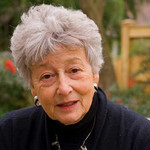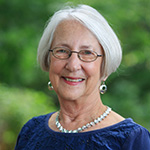Not My Feminism
March 23, 2017
By Ruth Nemzoff and Janet Freedman
Editor's note: An op-ed in the New York Times by Emily Shire, Bustle politics editor, "Does Feminism Have Room for Zionists," and a response in the Nation by Palestinian-American feminist activist Linda Sarsour, Can You Be a Zionist Feminist? Linda Sarsour Says No," prompted a national dialogue on the subject. Ruth Nemzoff and Janet Freedman share new views on the subject. Reprinted with permission from the Huffington Post.
Whoa! Who decided that feminism and anti-Zionism should be conjoined and expressed through actions such as support for the Boycott Divestment and Sanction (BDS) movement?
We, two feminists, offer another perspective.
Both of us have years of experience as successful feminist organizers. We resist the notion that it is necessary to declare oneself anti-Zionist to be pro-Palestinian. We do not support that idea any more than we believe that the Black Lives Matter movement has no room for police safety as some detractors charge. We believe feminism requires us not to deprecate, but to analyze.
Campaigns against Israeli policies such as Boycott, Divestment and Sanctions forbid intellectual exchanges, and this is antithetical to feminism. BDS directs feminist energy away from finding ways to a peaceful solution that respects the humanity of both Israelis and Palestinians. It oversimplifies, using terms such as decolonization and anti-imperialism and other tropes, usually without definition or explanation, and often distorts actual history. BDS resolutions are equated with a pledge of solidarity with Palestine, while placing those who oppose that strategy in the enemy camp, assumed to be opposed to justice and even made the objects of scorn and vitriol.
If the intent is to bring Israel to negotiations for peace, BDS is counterproductive. The current Israeli government, unlike previous coalitions, cites BDS to support positions and policies that will not promote peace. It has been joined by many on the political right within the U.S. The Palestinians, too, hold fast to positions and policies inimical to peace. Our response to feminists is to resist polarization and to redouble efforts that have made progress toward increasing communication and understanding between Israelis and Palestinians, including camps, high tech programs, and joint economic initiatives and to encourage further such efforts. We seek partners in these endeavors within the Jewish and Arab world.
Yet some pro-Palestinian activists within the feminist movement are pushing in the opposite direction, going even beyond BDS to an advocacy of "anti-normalization," an end to all interactions with Israel. This raises fears that peace is not the real aim of the anti-Zionists within progressive movements. Do they seek to widen divisions to justify the destruction of Israel? Do feminists wish to ally themselves with that goal?
Feminist activism should be based on continual study, reflection and dialogue. Discussions about Israel/Palestine demand and deserve a thorough and thoughtful analysis of the long and complex historical, familial, religious, spiritual and political sources of the present conflict. They demand and deserve a sustained commitment to a peaceful resolution, no matter how distant and difficult that now seems. That longed-for resolution can be realized only through engagement with those with whom one disagrees.
It is easy to feel despair and fear when a way toward peace seems obscure, but yielding to the valorification of one "side" (whichever "side" you claim to be on) and the demonization of the "other" is not an expression of feminism.
 Ruth Nemzoff, PhD, is a resident scholar at the Women's Studies Research Center, Brandeis University and author of "Don’t Bite Your Tongue: How to Foster Rewarding Relationships with Your Adult Children" and of "Don't Roll Your Eyes: Making In-Laws Into Family." She is the former assistant minority leader, New Hampshire House of Representatives.
Ruth Nemzoff, PhD, is a resident scholar at the Women's Studies Research Center, Brandeis University and author of "Don’t Bite Your Tongue: How to Foster Rewarding Relationships with Your Adult Children" and of "Don't Roll Your Eyes: Making In-Laws Into Family." She is the former assistant minority leader, New Hampshire House of Representatives.
 Dr. Janet Freedman is a Resident Scholar at the Brandeis University Women's Studies Research Center, a member of the Academic Advisory Committee of the Hadassah-Brandeis Institute and the author of "Reclaiming the Feminist Vision: Consciousness Raising and Small Group Practice" (McFarland, 2014)
Dr. Janet Freedman is a Resident Scholar at the Brandeis University Women's Studies Research Center, a member of the Academic Advisory Committee of the Hadassah-Brandeis Institute and the author of "Reclaiming the Feminist Vision: Consciousness Raising and Small Group Practice" (McFarland, 2014)